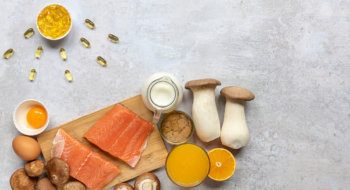When you are exposed to an allergen or illness or hurt yourself, your body’s immune system triggers inflammation to respond and promote healing. It’s the body’s natural defense mechanism against foreign invaders and injury.
But when inflammation becomes chronic, it can cause damage to the body and increase your risk for serious conditions such as diabetes, depression, heart disease, Alzheimer’s disease and arthritis, according to studies by the National Institutes of Health.
“Inflammation can be good and bad in your body,” says Salem Hough, a Tidelands Health registered dietitian who specializes in helping cancer patients and their families with nutritional planning. “Prolonged inflammation can contribute to chronic diseases such as obesity, diabetes and heart disease.”
Diet matters
The good news is that regular exercise and a healthy diet can help limit inflammation in the body and reduce your risk for chronic disease, Hough says.
Here’s a look at some foods that can promote inflammation and should be limited:
- Sugary foods such pastries, cakes and doughnuts
- Fried foods such as French fries and fried chicken
- Sugary drinks including sodas and sweet tea
- Refined carbohydrates including white bread and white pasta
- Processed meats such as hot dogs, sausage and ham
- Foods with trans fats such as fried foods
- Alcohol
In addition to diet, other factors like environmental toxins and chronic stress can also lead to chronic inflammation.
Featured Article
Read Article“By eating a diet that is rich in anti-inflammatory foods — think mostly plant-based foods — and decreasing your intake of highly processed foods that are high in fat, starch and sugar, you can reduce your risk for developing chronic diseases due to inflammation,” Hough says. “In my practice at Tidelands Health Cancer Center Network, I educate survivors on Mediterranean-style diet modifications to help prevent chronic inflammation and cancer recurrence.”
Tidelands Health Cancer Care Network is our region’s most advanced provider of cancer care and the exclusive MUSC Hollings Cancer Network member serving Georgetown and Horry counties.
Better choices
An anti-inflammatory diet should include these foods:
- Nuts such as almonds and walnuts
- Fruits such as berries, cherries, apples, grapes and oranges
- Green leafy vegetables such as spinach, kale, broccoli and collards
- Fatty fish such as salmon, tuna, sardines and mackerel
- Olive oil
- Tomatoes, avocados, peppers and mushrooms
- Green tea
- Spices such as turmeric, cinnamon and cayenne
- Dark chocolate
Why do these foods help reduce inflammation? They contain antioxidants and polyphenols, which are anti-inflammatory compounds, Hough explains. These compounds have been shown to reduce inflammatory proteins in the blood, which in turn can lower the risk of developing certain diseases. Plus, these protective compounds can help fortify the immune system.
Balance
Limited consumption of inflammation-promoting foods isn’t likely to cause health concerns, Hough says, but it’s important to generally consume a well-balanced diet that includes primarily whole foods and lots of fruits and vegetables. In addition, exercising regularly and managing stress should be part of a healthy lifestyle.
“There is no one medicine that can do all that a healthy lifestyle can,” Hough concludes. “By eating a diet rich in fruits, vegetables, whole grains, lean proteins and healthy fats, getting at least 150 minutes per week of physical activity and reducing stress levels through breathwork, meditation or yoga, you provide the most benefit to reducing inflammation and boosting your immune system.”





